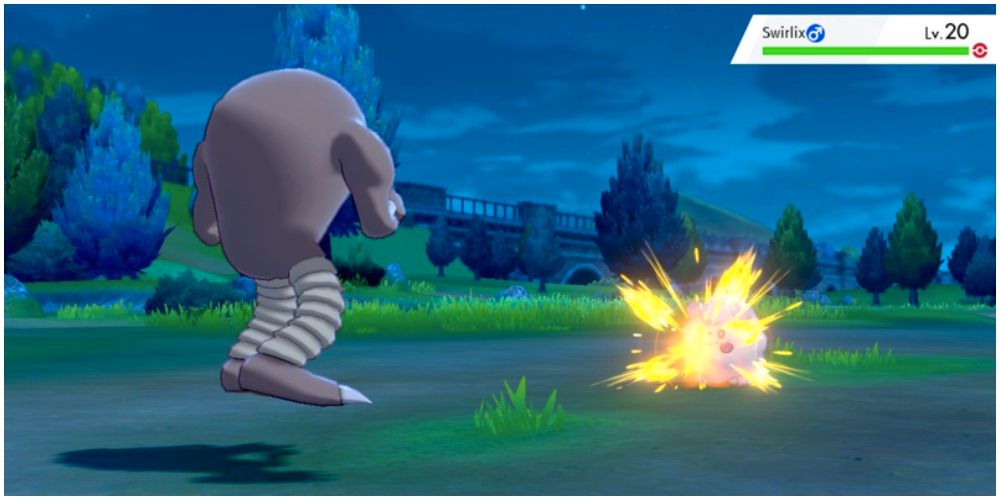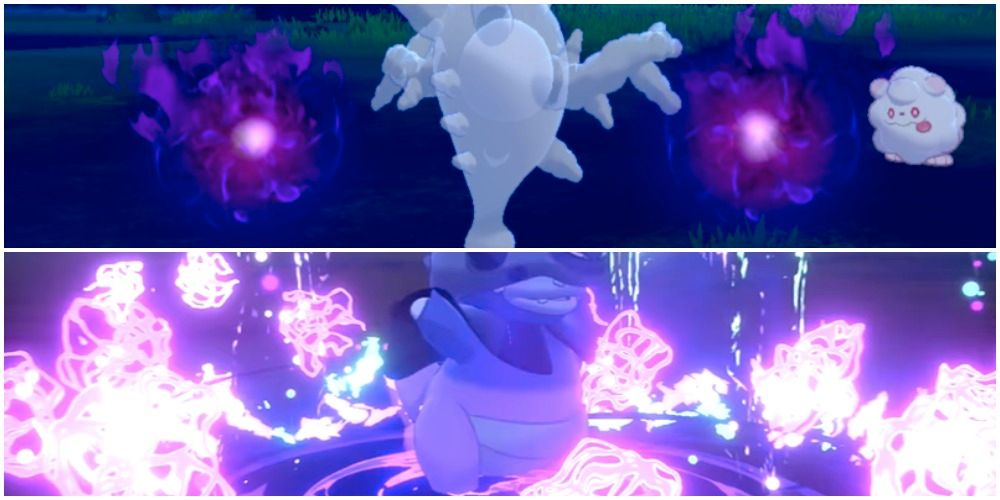Quick Links
- Detailed Analysis Of The Power Points Mechanic
- How To Increase & Restore Power Points
- List Of Moves & Abilities In The Pokemon Main Series Games That Affect Power Points
There aren't too many ways that trainers are limited in Pokemon Sword & Shield, however, Power Points represent one of the main factors that control the overall dimensions of a Pokemon battle. Every move has a max number of Power Points (PP) that determines how many times that move can be used before the pokemon must rest to recover PP.
RELATED: Pokemon: How Damage Is Calculated
While seeming straightforward, there are actually many hidden mechanics behind how PP works that most trainers may not know. These mechanics as quite subtle and don't often affect battles in modern games like Pokemon Sword & Shield, though, the more patient battlers out there have been known to utilize tactics that drain a foe's PP to defeat them.
Detailed Analysis Of The Power Points Mechanic

How Power Points Work
As a general yet loose rule, weaker moves that are usually learned at low levels, such as Tackle and Growl, get way higher base PP than more powerful moves like Hydro Pump and Protect. The base PP of a move always starts off being a multiple of 5, though the max PP of a move can potentially be forcibly increased via consumables to 64 before the game's engine won't allow further increases.
Under normal circumstances, the PP of a move will drop by 1 every time that a pokemon uses that specific move. For example, Hydro Pump, which starts with 5 max PP, will drop to 4 after its user launches their first Hydro Pump attack. This will continue until there are 0 PP left, in which case the active pokemon will no longer be able to use Hydro Pump unless healed at a Pokemon Center or their trainer restores PP with a consumable.
RELATED: Pokemon: Everything You Need To Know About One-Hit KO Moves
What Happens When A Pokemon Runs Out Of Power Points
When a pokemon runs out of PP for all of its moves, it will be forced to use the move Struggle unless its trainer switches them out of battle. Struggle is essentially a desperation move that still allows a pokemon without PP to act in battle, however, there is a cost to using it.
Struggle is very weak, with a low base power of 50, and does not get a Same Type Attack Bonus (STAB) despite being technically classified as a Normal-type move. More importantly, while Struggle can deal a bit of damage to foes, it will usually deal way more to its user, taking out 1/4 of their max HP every time it is used in one of the most severe recoil effects in the franchise.
How To Increase & Restore Power Points

How To Increase Maximum Power Points For A Move
There are 2 consumable items that can raise the max PP of a move: PP Up and PP Max, both of which are classified as a stat-boosting vitamins. These items can rarely be found while exploring, bought from specific shops, or various other methods.
PP Up will raise the max PP of a move by 20% of its original value (for example, a move with 10 base max PP will be increased to 12) and PP Max will raise the max PP of a move by 60%, however, there are limitations of each. PP Up can only be used a total of 3 times on a single move, and PP Max only once. Attempting to use a PP Max on a move after using 1 PP Up on it will not push past this limit and will result in that PP Max only increasing the max PP by 40%, essentially partially wasting this rare consumable.
RELATED: The Best-Performing Pokemon In Competitive Play
How To Restore Power Points For A Move
Both inside and outside of a battle, trainers can also use a few select items to restore PP to a single move or even to all of a pokemon's moves at once:
| Item Name | Amount Of PP Restored | Moves That Can Be Targeted |
| Ether | 10 | Single Move |
| Max Ether | All | Single Move |
| Elixir | 10 | All Moves (on a single pokemon) |
| Max Elixir | All | All Moves (on a single pokemon) |
| Leppa Berry | 10 | Single Move (can be held by a pokemon for automatic use) |
| Sacred Ash | All | All Moves (Generation 2-only; affects all pokemon in the trainer's party) |
In addition to the moves listed above, as well as healing at a Pokemon Center, players can also potentially utilize the move Lunar Dance to fully restore PP to a pokemon that one is about to send into battle, though, since this move causes the user to faint, it is a risky play.
List Of Moves & Abilities In The Pokemon Main Series Games That Affect Power Points

| Name Of Move | Description |
| Eerie Spell | Decrease PP by 3 for the last move used by the enemy and is also a damage-dealing special move |
| G-Max Depletion | Decrease PP by 2 for the last move used by the enemy and is the exclusive G-Max move of Gigantamax Duraludon |
| Grudge | Must be used before the opponent acts to take effect; when the user faints as a result of an enemy damage-dealing move, that move will lose all PP |
| Spite | Decrease PP by 4 for the last move used by the enemy (in Generation 2 and Generation 3 games, this move decreased PP by a random value between 2 to 5) |
| Trump Card | The base power of this damage-dealing special move increases the lower its PP gets |
In addition to the moves listed above, there is a single ability that affects PP usage. The ability, Pressure, will cause enemies to use 1 more PP than usual when they use a move, essentially doubling the PP loss caused by normally using moves in battle.

